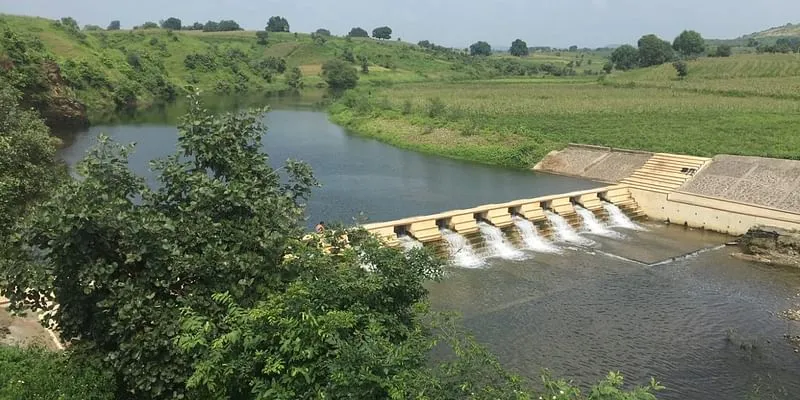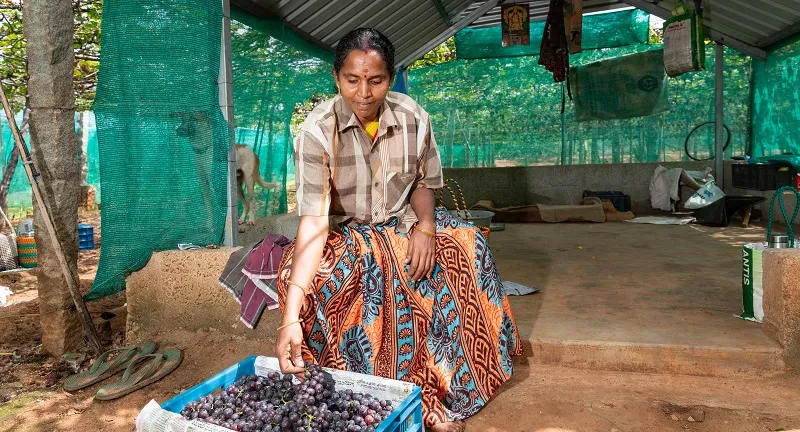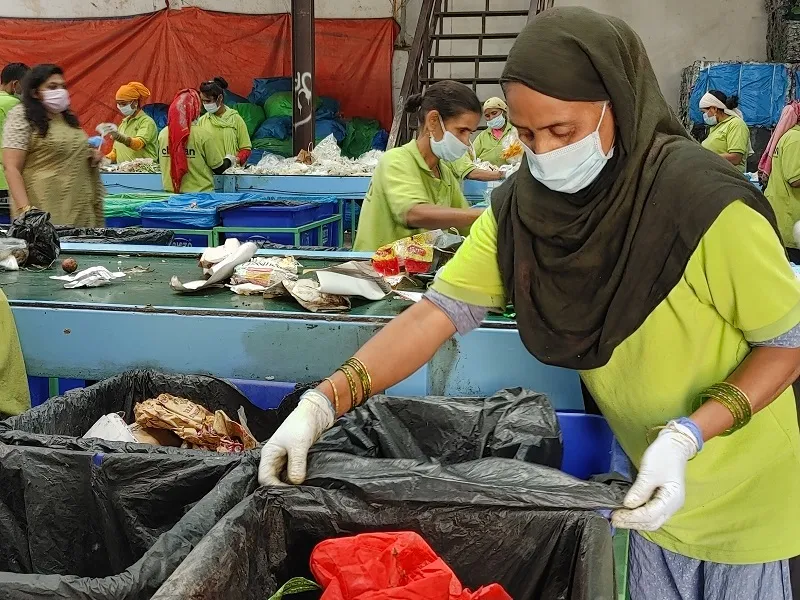[Sustainability Agenda] How Coca-Cola India is making every water drop count
Through its various ESG initiatives, the Coca-Cola India Pvt. Ltd (CCIPL) helps reduce plastic waste, create a fruit circular economy and reduce, recycle and replenish water.
Water stewardship has long been a business imperative for the Coca-Cola Company.
“Sustainability is and will always be the heart of our operations. We have always focused on creating a sustainable business and better-shared future to make a positive difference in communities and our planet,” says Devyani Rajya Laxmi Rana, Vice President - Public Affairs, Communications and Sustainability, Coca-Cola India and Southwest Asia.
Over a decade ago, Coca-Cola set a pioneering goal to replenish the water used in its beverages, consume it efficiently, and treat the wastewater from its production processes.
In 2021, it globally launched a new holistic strategy to achieve water security for its business, communities, and nature — at all its operational locations by 2030 by sourcing agricultural ingredients for its products.

For this, it focuses on three core priorities — reducing shared water challenges around the world, enhancing community water resilience with a focus on women and girls, and improving the health of priority watersheds.
In fact, earlier in 2022, the global beverage giant announced it has exceeded its 2020 water replenishment goals through its ‘Reduce, Recycle and Replenish’ initiative.
To bring in inclusive sustainable development, the company started the Anandana in 2008 by focusing on areas to create a better and healthy society.
Through key water replenishment projects — in partnership with its bottling partners, NGOs, civil society organisations (CSOs), and community members — Anandana has made contributions to the holistic development of communities in distressed regions across India.
Empowering and sourcing ethically
Coca-Cola India Pvt. Ltd (CCIPL) has developed concerted initiatives, including World Without Waste, Water Leadership, Fruit Circular Economy, and women empowerment, for some of its high priority environmental, social, and governance (ESG) issues.
Besides focusing on water scarcity challenges, it pays attention to community participation, especially women empowerment. These women become supervisors in village Pani Samitis (water committees) to ensure proper maintenance and sustainability of community water projects.
"Our interventions are geared towards creating effective and sustainable socio-economic models to support the Government of India’s vision of a self-reliant India (Atmanirbhar Bharat). It is about creating sustained outcomes that drive value and fuel growth while strengthening our social license," Devyani explains.

A grapes farmer
The substantial shift in consumer buying — with consumers preferring ethically and sustainably sourced products — emphasises the need for companies to make their supply chains more viable and robust.
“At Coca-Cola, we believe agriculture should be resilient, environmentally sustainable, cause minimal damage, and, wherever possible, be restorative to the surrounding environment in all areas and activities on the farm. With this guiding principle, we continue to work collaboratively with farming communities to help them increase productivity and profitability, ensure long-term viability and improve resilience to climate, market, and other changes,” Devyani adds.
Waste reduction
Launched in 2018, Coca-Cola’s global initiative World Without Waste (WWW) intends to create a circular economy for plastic by connecting all participants in the plastic recycling value chain through its strategic framework, including design, collection, and partner.
By 2030, the initiative aims to collect and recycle every bottle and can it sells globally to provide it with more than one life — a one-for-one collection and recycling system.
“We have made significant developments in India, where we have recovered a total quantity of post-consumer packaging of 62,825 metric tonnes in 2020. About 36 percent of these bottles and cans were refilled or helped recover — equivalent to what we introduced into the Indian marketplace,” claims Devyani.

Waste workers who are associated with CCIF
Through knowledge management, traceability, monitoring, and communication mechanisms, CCIPL develops and implements economically sustainable models for plastic waste management.
It creates material recovery facilities (MRFs) and Swachhta Kendras, improving the socio-economic conditions of waste workers and providing them institutionalised benefits.
Today, Coca-Cola India is a founding member of the India Plastics Pact (IPP) — Asia's first public-private collaboration to promote a circular economy surrounding plastics — enabling innovative ways to eliminate, reuse, or recycle plastic packaging across the value chain and collectively achieve long-term targets.
Sustainable agriculture
In its Sustainability Update 2020-21, the company has reiterated its commitment to supporting farmers’ incomes by promoting sustainable agriculture through Project Unnati under its Fruit Circular Economy programme.
Under this initiative — which trains and builds capacity for farmers on good agricultural practices (GAPS) — Coca-Cola has helped increase productivity by 5X.
In the next three years, it plans to benefit over 500,000 farmers by aiding the Indian agri-ecosystem by enhancing farming efficiency, strengthening forward linkages, building food-processing capacity, addressing the challenges of low farm productivity, poor technology adoption, and fruit wastage in India’s horticulture sector.
The Coca-Cola Company’s ESG objectives prioritise inclusivity, sustainability, and equitable growth for all. In 2010, the Coca-Cola Company announced a global goal ‘5by20’ to enable the economic empowerment of five million female entrepreneurs across its value chain by 2020 — from fruit farmers and artisans to recyclers and retailers.

Project Unnati
The company has been able to enable over six million women across 100 countries to provide business skills training, mentoring networks, financial services, and other assets to help women’s livelihoods and businesses.
Spread across six commodities and 11 states, the Fruit Circular Economy initiative has resulted in the saving of 600 billion litres of water and has achieved up to five times the productivity for apple farming.
Additionally, these initiatives have helped farmers to adopt drip irrigation, practice mulching, and train them to optimally use water.
Devyani says, “While our legacy continues to shape our future, our innovations and continued strides in sustainability remain central to our operations across India. We continue to collaborate with and jointly work on projects with our system stakeholders towards one common goal — to care for our communities and win a social license for the Coca-Cola system.”
She adds, “Above all, we are committed to achieving business success responsibly and resolve to continue tending to its people and communities.”
Edited by Suman Singh

![[Sustainability Agenda] How Coca-Cola India is making every water drop count](https://images.yourstory.com/cs/5/79900dd0d91311e8a16045a90309d734/cciff-1650553927547.jpg?mode=crop&crop=faces&ar=2%3A1&format=auto&w=1920&q=75)






